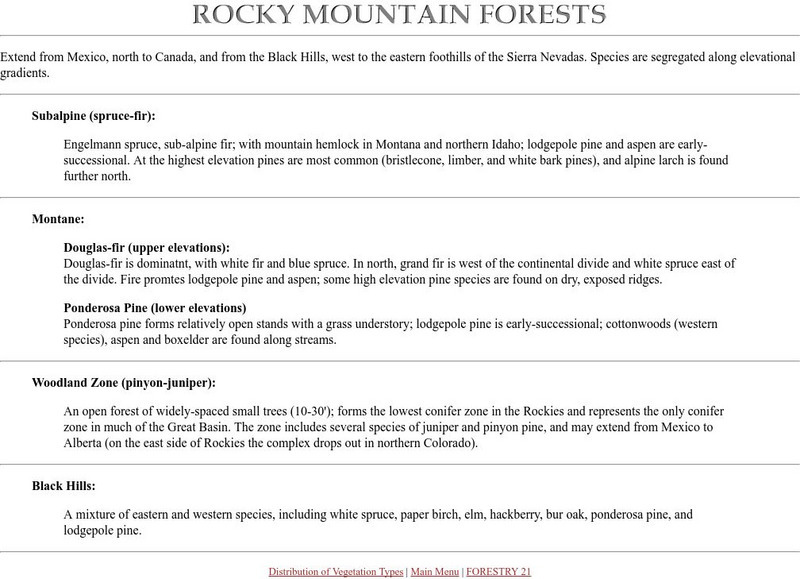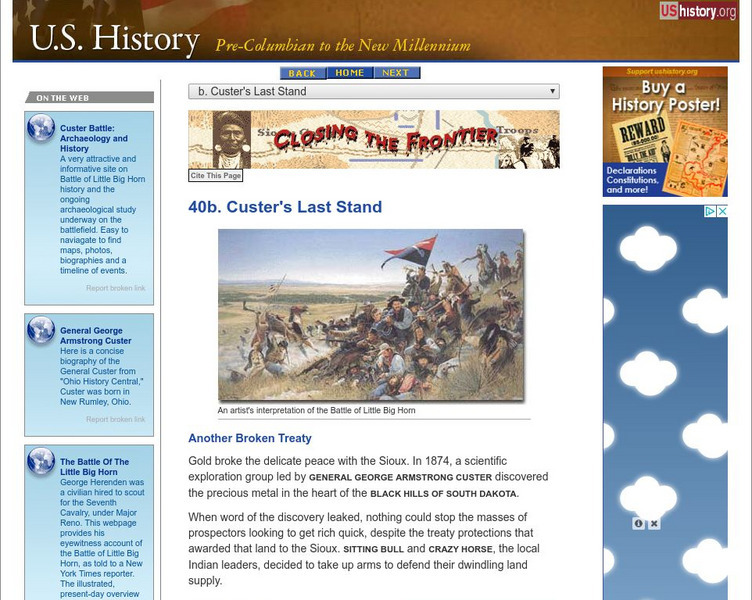US National Archives
Our Documents: Treaty of Fort Laramie(1868)
Read and view a copy of the complete text of the treaty of Fort Laramie which recognized the Black Hills as part of the Sioux Reservation. Accompanying documentary explains how the treaty was broken as a result of the discovery of gold...
Other
The Weekly South Dakotan: South Dakota History for 4th Grade
From the very beginning and through the twentieth century, this comprehensive collection of lessons will enrich students studying the history in between and the effects on South Dakota.
Other
Crazy Horse Memorial: Crazy Horse Black Hills, South Dakota
Official website of the carving in progress. A moving memorial to the spirit of Native Americans. Be sure to view the carving through the live webcam. Beautiful!
Other
Crazy Horse Memorial: Crazy Horse Black Hills, South Dakota
Official website of the carving in progress. A moving memorial to the spirit of Native Americans. Be sure to view the carving through the live webcam. Beautiful!
Houghton Mifflin Harcourt
Harcourt: School Publishers: Carving a Memorial to Chief Crazy Horse
This Harcourt Publishing site is all about the memorial carved in the Black Hills of South Dakota in honor of Chief Crazy Horse.
US National Archives
Nara: American Originals: Black Hills Treaty
This web page from the National Archives and Records Administration has a link to a copy of the actual Treaty of 1868, when the United States recognized Black Hills as part of the Great Sioux Reservation.
Other
South Dakota: Mount Rushmore
Presents information about the famous sculpture in South Dakota's Black Hills.
Other
University of Vermont: Rocky Mountain Forests
Contains brief descriptions of tree species which can be found at various elevational gradients: Subalpine, Montane, Woodland Zone, and Black Hills. These same types of forests would have greeted early settlers to the area.
Independence Hall Association
U.s. History: Custer's Last Stand
Read a brief description of General George Custer and his troops engagement with the Sioux at the Little Big Horn River. See what happened to the Sioux, and find out what the general perception of the Indian Wars was to the American public.
Curated OER
National Park Service: Wind Cave National Park: History of the Black Hills
Story of the discovery of gold in the Black Hills of South Dakota and resulting violations of 1868 treaty with Lakota Indians.











